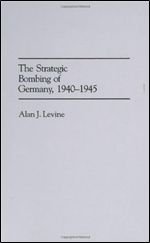Marsilius of Inghen, born in or around Nijmegen (Netherlands) in the 1340s, was one the most influential thinkers of the late-medieval period. His lectures drew large audiences and his writings were read at many universities. He received his philosophical education at the University of Paris, where he became active as a Master of Arts in 1362, purportedly remarkably young of age. Nicolas Prowin, in his funeral speech, highlighted that Marsilius was not yet 20 when he earned his Master’s degree. As a Master, he had many students, especially from the region around Nijmegen, who went on to become teachers at local schools. It was perhaps for this reason that the City of Nijmegen honored him with a copious banquet in 1382. Marsilius was rector of the University of Paris in 1367 and in 1371, and procurator of the so-called ‘‘natio anglicand’ from 1373 to 1375. He also represented the University at the Papal Court in Avignon in 1377-1378. Most likely due to troubles related to the Great Schism, he left Paris for an unknown destination following his visit to Avignon. In 1386, he became the first rector of the University of Heidelberg, which he shaped substantially, serving as rector nine times in 1386-1392 and 1396. In Heidelberg, he was a Master of Arts and student of theology, the study of which he had begun in Paris around 1366. He obtained his theological degree in 1395-1396, being the first theologian to earn a doctorate in Heidelberg. Soon afterwards, on August 20, 1396, the day of Saint Bernhard, he died and was buried in the Church of Saint Peter in the choir before the main altar. Regrettably, his grave no longer exists; however, both a small square next to the University and a Centre for Advanced Study carry his name.
Soon after his death in 1396 he was labeled a “Nominalist” and bracketed together with William of Ockham and John Buridan. To be sure, however, he himself never used this nor any other label to characterize his thought. At points he was even critical of Ockham and Buridan, although he shared their conviction that univer-sals were only names or concepts and that the object of knowledge was not the thing but the proposition that referred to the thing, hallmarks of late-medieval Nominalism.
Since the early sixteenth century, historiography has considered Marsilius to be a pupil of Buridan, induced from the fact that Marsilius often referred to Buridan as his master, and even once remarked that he may have been guided by a passionate predisposition towards the latter. Modern research, however, seriously questions whether Marsilius was a pupil of Buridan, since the two belonged to different nations at the University of Paris. It appears that Marsilius was not educated by Buridan, even though he admired his teachings or writings. His teacher was in fact William Buser of Heusden, who, like Marsilius, belonged to the “natio anglicana’.’ That he referred to Buridan as his master, therefore, must be considered a mark of honor, as was not unusual at the time.




 World History
World History









